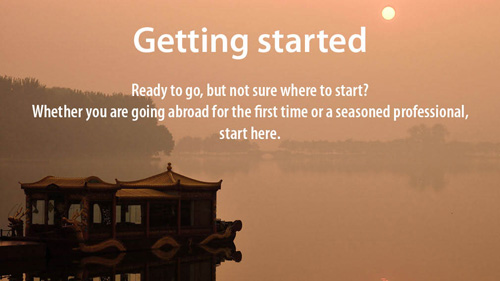- Name: Dr. Sam Lanfranco
- Current location: Canada
- Home town: Toronto
- Education: Bachelor and PhD, Economics
- Current position: Prof. of Economics (Ret.) York University, Toronto; Executive Committee: Society for the Advancement of Science in Africa; Advisor: Ambedkar Centre for Justice and Peace (Mumbai); Chair, Policy Committee, ICANN/NPOC Constituency; Board, ISOC Canada Chapter.
- Bio: Over the past decade Dr. Lanfranco has conducted academic research and engaged in projects with the World Bank, UNCTAD, UNDP, various development assistance programs (IDRC, CIDA, etc.) He has worked at the program desk level, and in the field as a consultant. He have mentored numerous undergraduate students via relationships that extend beyond enrolment in his courses and beyond graduation. He has “trained,” mentored and collaborated on books and projects with PhD students that he has supervised. He has managed teaching assistants, as well as junior researchers hired for research and development projects. Many have gone on to impressive careers in their own right.
- Years in the field: 50
- Countries I've worked in: Multiple
- Sector / subsectors: International development, Business
- Areas of expertise: Economics, Business, Education, Health, Tourism, Information technology
- Country: Worldwide
- Sector: Business, International development
- Degree subject: Economics
What backgrounds or skill sets are particularly advantageous in gaining work in this field?
The work context defines the technical or applied skills a person should have, but that is only a small slice of what is needed. One needs the ability to critically assess challenges within a[n international development] context, and not just extol the virtues of (hoped for) outcomes. An ability to ask the right questions, in an environment of truth, transparency and trust, is essential; as is an ability to really listen to, and hear, the participating stakeholders—including the intended beneficiaries.
It is not enough to have an impressive skill set. One should also have an outcomes-focused measurement and evaluation strategy, from the start of any effort, and an ongoing ability to learn. All too often what is measured is “inputs” (e.g. bed nets distributed) rather than “outcomes” (what happened to the bed nets and the sickness rates) and inputs are confused with successful outcomes.
Additionally, I would like stress the ability to ask good questions. Young professionals frequently presume too much, in an effort to look skilled and professional. When they are wrong—usually because they don’t fully understand the context—they can turn defensive and offer excuses that do not reflect well on this. Lesson: Ask, do not presume.
What skills are in the highest demand? Are there any areas of specialization that are particularly needed at this moment?
Development work is not like construction where demand can be enumerated in terms of categories of skills. What makes it more difficult is that—other than accounting, law, and the like—there are no certification processes (and there can be no certification processes), for required skills sets in particular settings.
As Millennium Development Goals (MDGs) are replaced by Sustainable Development Goals (SDGs), many CVs just receive a “search and replace” treatment, where the development demand “flavour of the moment” becomes a resume skill. This has led to repeated disasters, small and large, in areas like microfinance. As an example, I would cite the Jeffery Sachs Millennium Development Villages shortfalls/failures on many fronts. The microfinance disasters within the Millennium Development Villages are a “poster child” example of how claimed expertise produces systemic failure. One additional problem is that funded projects frequently have to find staff after being granted funding.
Entering this field with more than a certain amount of humility is an asset and a good interpersonal skill. Also, sadly, many funded projects are flawed from the start, and exhibit an inability to learn and make corrections in the process. Projects with high profile proponents able to lever funding are particularly problematic. Being recruited for a project like the now-defunct (but costly) One Laptop Per Child or the Millennium Villages project may give one a job and even pad one’s resume, but much of what might be learned is about how not to do things.
Is a background in international development necessary to work in business within a development context?
One needs both a background in international development that involves real engagement with development issues, plus some business savvy to assess planning, execution and outcomes. It is not enough just to have curricular certification or a brief voluntourism stint, both of which tend to instil a false sense of competence on the part of the aspiring development professional.
Once upon a time, international development programs were part of a liberal arts education, with the same hopes of building critical thinking around development challenges. Increasingly, universities have switched to international development management programs where graduates are frequently both poorly trained and overly self-confident as they seek “management” positions in development.
What, in your experience, are the most important skills and abilities necessary to succeed in this career? (Both in international development and in business?)
If I have to sum up 50 years of experience, I would say that one enters any aspect of development work with humility, seeking engagement and trust on the part of stakeholders, and transparency with regard to activities. There may be a tension between development effort—with a high degree of effort in the public interest—and business effort—where there can be a high degree of unhealthy competition.
When multiple development agencies are working in the same area and in the same countries, there can be weak collaboration, partnership, [poor] communications between them, and jockeying with local authorities (contrary to SDG #17!) for privileged access. I have witnessed this on the part of consulting companies working abroad for CIDA and USAID.
Understand the mission, vision and context of the position you are being hired for, be able to both ask those good questions, and identify skills relevant to the challenges. Some issues to reflect on are how accountability and transparency (to whom?) are handled. How are internal knowledge sharing, measurement and evaluation handled? Ask what are the key things that the candidate should learn fast if they are hired.
How do you determine whether a candidate has intercultural competencies and is capable of working abroad? What can professionals do to improve their intercultural competencies before departing for an overseas placement?
Unless a candidate has come from an intercultural background this is very difficult, and even if they have, they may have developed in ways that are at odds with the background.
Some training, like that done for diplomatic staff by the U.S. State Department and Ministries of Foreign Affairs, can help candidates that are already sensitized and only need a primer on local customs in a new setting. For me [assessing someone’s competencies] it is a combination of what I see, and some “gut feeling” about how they will survive in a setting I am familiar with.
Two different examples: Selecting someone for a Latin American posting, one highly skilled candidate, in response to how they would spend their free time, replied by saying they would bring a library of Canadian fiction and get caught up on their reading. We took that as a lack of sensitivity to learning about the job challenges in the local placement context. The other involved recruiting a marine engine mechanic for a fishing community in east Africa. We concluded that the older skilled candidate would not only fit in well with the local fishing community, there was a good likelihood that he would meet and marry a local woman and stay there. For that reason, the hiring organization turned him down.
When international hires don’t work out, why do you think that is?
International job applicants apply for a myriad of reasons, some personal, some idealistic and some professional. If they have not worked abroad, they may be ill-suited for the realities of development work. They may be seduced by the exotic and frequently fail to perform adequately. Unfortunately, much development reporting and assessment can record failure [as if it were] success. A good track record—and not just a good resume—helps, but that is of little help for assessing one just starting out in the development field.
There are two types of international hires that can go bad. The first is when consulting firms land contracts and then have to scramble to find a full complement of hires to cover all the bases. Usually they have a short list for only some of the positions, and cannot be as selective as they should or would like to be for the rest. That is an endemic problem since the consulting or development firms cannot promise employment before landing a contract, and in-house skills tend to be increasingly contract management skills, and not field-based project delivery skills.
The other problem is that, for many assignments that are not technically narrow, the hire is retained to do a job that the firm only partially understands. A good hire will help the firm define the job, and a bad hire will complain that they don’t know what they are supposed to do. One needs hires that have an ability to be self-directed in terms of the job deliverables, and the right skills to “speak truth to their employer”. It is not uncommon for a good senior development professional to say, “I was hired and then had to help them figure out what it was I was supposed to do.”
What do you think most applicants should know when they are applying to a job abroad for the first time?
Go in with an attitude that learning comes from all directions and each step of the way. Don’t feel that one has to prove one’s self by acting decisive. Also, have a mentor—inside the organization or outside. A good mentor will help a new hire learn how to understand context, how to adapt and innovate on the fly, and how to engage in teamwork: the game is like soccer or jazz, where assigned roles are defined, but strategy involves who covers what depending on where the work (ball, melody) is at the moment. Like soccer and jazz, the project has a score, and a bit of an organizational chart, but teamwork, covering [for colleagues] and handing off skills are essential to success.
For people who want to contact you looking for work, what would you suggest makes a positive impression and what should a prospective applicant avoid doing?
Ask questions that make sure you know what is being asked for, and questions that convey that you are capable of getting on top of the task. Explain skills within the context of the work being done, and not simply with regard to what they are and where you got them. [Develop] a resume with both work experience, how it went, and some comments on lessons learned during the work. Listing career goals may be a required opener, but it quickly falls to the floor when interviewing gets serious.
Is there anything else that you would like to add about gaining work in international development within the field of business?
Doing the work is hard. If it doesn’t feel hard, you are not doing the work. Many of the successful development professionals I know (successful in terms of impact, not income) spent a long internship doing development work that did not pay well, but was real work and was not simply resume voluntourism. Dipping one’s foot in development, as a volunteer, intern, or part of a study program may be okay to self-test one’s interest and commitment, but by itself is not worth much on a job resume.
Add to Favorites


